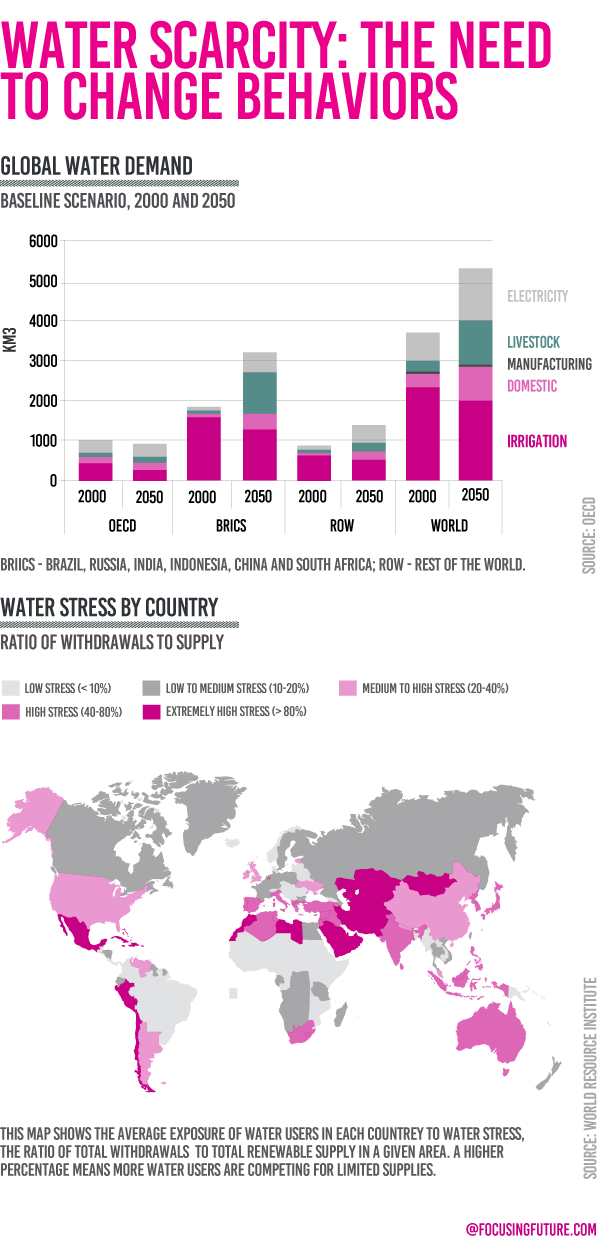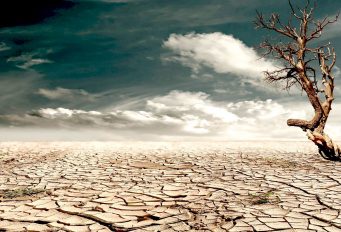![]() 5 minute read
5 minute read
According to OECD, the world water demand will rise by 55% from 2000 to 2050 and a sizable 130% increase in demand will be due to domestic usage. Given how there is a general towards more conscious environmental responsibility and preference for sustainable measures, the cleaning industry too is changing itself to become more water conservative. Similarly, consumers are altering habits, experimenting with more environmental indulgences and behavioral changes.
Less guilt on long showers:
looped shower systems

The amount of time an average person spends taking showers in his life cumulates to 2 years. As future generations change their lifestyles to suit sustainable alternatives, the number of resources associated with cleaning will have to be brought down. With the increased reliance on IoT and the need to use big data to make informed decisions, hygiene-related activities too will incorporate information based decision making.
One such approach is seen by the shower systems produced by Orbital Systems. These showers are inspired by the technology used in NASA’s Journey to Mars project where conserving water was a priority. The system is a closed loop water recycling system incorporated into a shower. This way water consumption per shower is limited to 5.7 liters as compared to 76 liters in conventional shower systems. Due to the reuse, annual water consumption can be brought down by up to 95%. As these showers retain the heat, energy costs can also be brought down by 80%. A smart android software records the savings and keeps a track of the system’s maintenance. According to Orbital Systems, their showers have saved up to 1.2 million liters of water till date. Numerous bathing houses in Sweden and Denmark are now equipped with these shower systems. The Swedish Armed forces have also adopted them for their remote outposts. The Central Hospital in Kristianstad has included them in their healthcare facilities.
Hamwells, a Netherlands based startup, has come up with their own version of smart showers called ‘e-showers’. Following on the same pattern of water conservation, these have the ability to reuse each drop of water up to 7 times. The drained water is treated with UV light, filtered and cleaned and then is reused. This leads to a 90% reduction in water usage and up to 80% in gas/electricity reduction. The smart technology used in these showers enables users to preset water temperature, allowing a better modulation and tracking of heat. The company presented their showers in Startup Battlefield at Disrupt London where they raised €1.2 million from suppliers and investors. Given the amount of enthusiasm in their models and the incorporation of Orbital system, the future of showers will emphasize re-usage and will blend in smart technology to better conserve resources.
Waterless baths:
a solution for all geographies
Others are experimenting with an even more drastic option of not bathing or taking showers at all. This is what is being done by Ludwick Marishane, the CEO and founder of DryBath. His company makes an ointment gel of antiseptic essential oils, bioflavonoids and natural deodorants that can be left on the skin and does not require washing away. Developed originally to serve African communities that don’t have access to considerable resources of water, it has since been marketed as a hygiene product in the form of sachets and wipes. The products have gained a sizable adoption with 60% of global online sales coming from the US and 20% from Europe. WWF has also supported the product as a solution to water wastage. In a recent TED talk, Marishane announced that his company was in discussion with a multinational for retailer selling of the products.
Rob Greenfield, an activist who cycled across America to raise awareness of sustainability has resorted to only using natural resources of water such as lakes or rainfall to clean himself. Others, like the James Hamblin, senior editor at The Atlantic, are insisting that there is no need to shower as our body systems are programmed to survive without them. In his documentary, he insists that we disrupt our natural eco-system when we shower as we wash away natural oils. This leads to a disbalance in the environment which is favored by microbes that produce odor. His methods and claims have gained fandom and people are considering discontinuing showering to save what is left of the depleting water resources of the world. Madeleine Somerville, the author of ‘All You Need Is Less: A Guilt-Free Guide to Eco-Friendly Green Living and Stress-Free Simplicity’ recently wrote in the Guardian, advising people to take part in the ‘no-shower’ challenge. She suggests that people should skip showers and let the natural bacteria flourish and clean us naturally.
Changing how we wash clothes
Traditional washing machines use more than 151 liters of water per wash which is then wasted. While environmentalists suggest washing in fewer intervals or preferring the bucket method, companies are trying to make the process more efficient and sustainable. Xeros, a company based in the UK has developed a washing technique which can reduce the water usage by more than 80%. The company manages this by using polymerous beads which attach to the clothes and release dirt. The beads can be reused hundreds of times. After the end of their usable lives, they can then be molded into any plastic products and hence become perpetually usable. The ability of the beads to clean is so effective that the company’s Global president of Laundry, Jonathan Benjamin, hints that more users will step up in the future: ‘Cleaning, dyeing—the potential for these beads is incredible. I’m not sure we’re close to a point that we’ll see humans bathing in polymer beads, but who knows?’.




